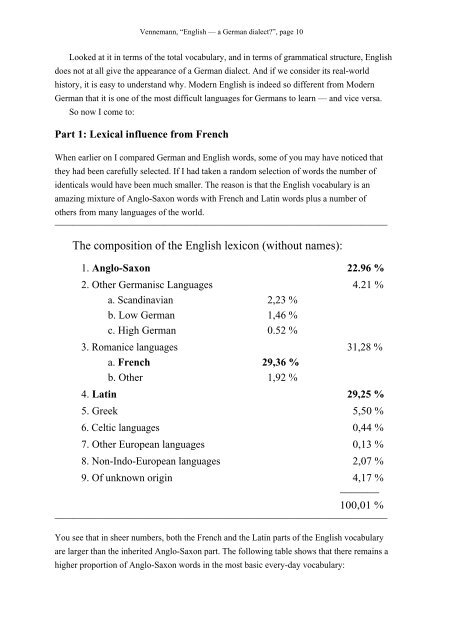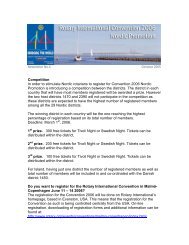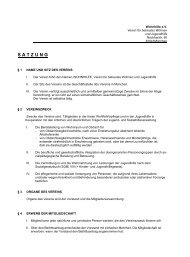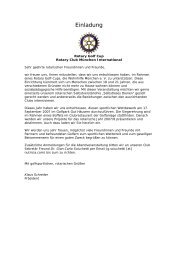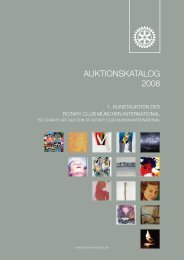English - a German dialect? - Rotary Club of Munich International
English - a German dialect? - Rotary Club of Munich International
English - a German dialect? - Rotary Club of Munich International
You also want an ePaper? Increase the reach of your titles
YUMPU automatically turns print PDFs into web optimized ePapers that Google loves.
Vennemann, “<strong>English</strong> — a <strong>German</strong> <strong>dialect</strong>?”, page 10<br />
Looked at it in terms <strong>of</strong> the total vocabulary, and in terms <strong>of</strong> grammatical structure, <strong>English</strong><br />
does not at all give the appearance <strong>of</strong> a <strong>German</strong> <strong>dialect</strong>. And if we consider its real-world<br />
history, it is easy to understand why. Modern <strong>English</strong> is indeed so different from Modern<br />
<strong>German</strong> that it is one <strong>of</strong> the most difficult languages for <strong>German</strong>s to learn — and vice versa.<br />
So now I come to:<br />
Part 1: Lexical influence from French<br />
When earlier on I compared <strong>German</strong> and <strong>English</strong> words, some <strong>of</strong> you may have noticed that<br />
they had been carefully selected. If I had taken a random selection <strong>of</strong> words the number <strong>of</strong><br />
identicals would have been much smaller. The reason is that the <strong>English</strong> vocabulary is an<br />
amazing mixture <strong>of</strong> Anglo-Saxon words with French and Latin words plus a number <strong>of</strong><br />
others from many languages <strong>of</strong> the world.<br />
_________________________________________________________________________<br />
The composition <strong>of</strong> the <strong>English</strong> lexicon (without names):<br />
1. Anglo-Saxon 22.96 %<br />
2. Other <strong>German</strong>isc Languages 4.21 %<br />
a. Scandinavian 2,23 %<br />
b. Low <strong>German</strong> 1,46 %<br />
c. High <strong>German</strong> 0.52 %<br />
3. Romanice languages 31,28 %<br />
a. French 29,36 %<br />
b. Other 1,92 %<br />
4. Latin 29,25 %<br />
5. Greek 5,50 %<br />
6. Celtic languages 0,44 %<br />
7. Other European languages 0,13 %<br />
8. Non-Indo-European languages 2,07 %<br />
9. Of unknown origin 4,17 %<br />
_______<br />
100,01 %<br />
_________________________________________________________________________<br />
You see that in sheer numbers, both the French and the Latin parts <strong>of</strong> the <strong>English</strong> vocabulary<br />
are larger than the inherited Anglo-Saxon part. The following table shows that there remains a<br />
higher proportion <strong>of</strong> Anglo-Saxon words in the most basic every-day vocabulary:


